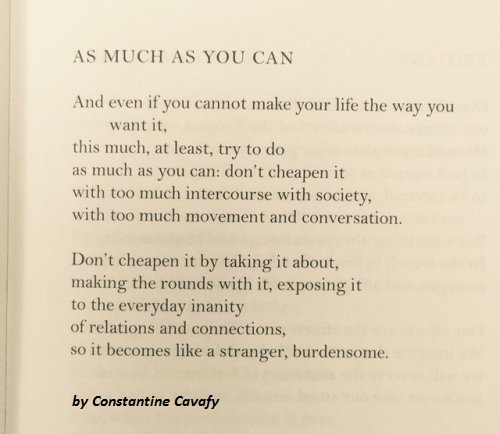A more human world lies just beyond the edge of the Status Quo.
Readers often ask me to post something hopeful, and I understand why: doom-and-gloom gets tiresome. Human beings need hope just as they need oxygen, and the destruction of the Status Quo via over-reach and internal contradictions doesn’t leave much to be happy about.
The most hopeful thing in my mind is that the Status Quo is devolving from its internal contradictions and excesses. It is a perverse, intensely destructive system with horrific incentives for predation, exploitation, fraud and complicity and few disincentives.
A more human world lies just beyond the edge of the Status Quo.
I know many smart, well-informed people expect the worst once the Status Quo (the Savior State and its corporatocracy partners) devolves, and there is abundant evidence of the ugliness of human nature under duress.
But we should temper this Id ugliness with the stronger impulses of community and compassion. If greed and rapaciousness were the dominant forces within human nature, then the species would have either died out at its own hand or been limited to small savage populations kept in check by the predation of neighboring groups, none of which could expand much because inner conflict would limit their ability to grow.
The remarkable success of humanity as a species is not simply the result of a big brain, opposable thumbs, year-round sex, innovation or even language; it is also the result of social and cultural associations that act as a “network” for storing knowledge and good will–what we call technical and social capital.
I have devoted significant portions of my books–
to an explanation of how community and self-reliance have atrophied under the relentless expansion of the dominant Savior State.
The social capital and “return on investment” earned from investing time and energy in community and other social networks has been replaced by a check from the Savior State–a transfer payment that surely beats the troublesome work of investing in community in terms of risk and return.
The net result of the Savior State dominating society and the economy is the rise of a pathological mindset of entitlement and resentment–the two are simply two sides of the same coin. You cannot separate them.
Once self-reliance has been lost, so too has self-confidence been lost, and the Savior State dependent–individual and corporation alike–soon distrusts their ability to function in an open market.
This is a truly sad, self-destructive state of affairs, and deeply, tragically ironic. The calls for “help” quickly lead to dependence on the Savior State, and that dependence quickly breeds complicity and silence in the face of repression and predation by the State and its corporate partners.
In a very real sense, citizens relinquish their citizenship along with their self-reliance and self-worth once they accept dependence on the State.
I often mention that the U.S. has much to learn from so-called Third World countries that are poorer in resources and credit. In many of these countries, the government is the police, the school and the infrastructure of roadways and energy. Many of these countries are systemically corrupt, and the State is the engine of enforcing that corruption.
Rather than something to be embraced and lobbied, involvement with the State is something to be avoided as a risk. In everyday life, people rarely encounter the government except in law enforcement or schooling.
As a result, people depend on their social capital and community for sustenance, support, work and connections.
This is not altruism, it is mutually beneficial.
Once a community dissolves into atomized individuals who each get a payment from the Central State, then they no longer need each other. Rather, other dependents on the State are viewed as competitors for the State’s resources.
These atomized, isolated individuals have a perverse relationship with the State and what remains of the community around them: lacking the self-worth earned from work or engagement/investment in a community, then their only outlet for self-identity is consumption: what they wear, eat, drink, etc. as consumers.
This dependence on the State also serves the State’s goal, which is a passive, compliant populace of dependents, and distracted, passive workers who pay their taxes. Thus dependence on the State and a hollow consumerism are ontologically bound: one feeds the other.
The era of debt-based consumption as the engine of “growth” and “prosperity” is coming to an end. Adding debt via credit no longer creates growth; it actually takes away from the economy by expanding debt service (interest payments).
The vast majority of developed-world people have had the basics of life since the late 1960s — transport, food, shelter and utilities. The “growth” since then depended on cheap, abundant oil and a consumerist mentality in which one constantly re-defines and renews one’s identity not from social investments in others or the shared community but from consumption.
|
Not coincidentally, this dominance of consumption as the only metric for “growth” (as opposed to, say, productive activity) has been paralleled by the dominance of the Central State.
The end of credit-based consumption will be a very positive development, as will the devolution of the Savior State. The Savior State is like oil–both are at their peaks and are starting their inevitable slide down the S-curve. The world they created was not as positive for human fulfillment and happiness as we have been told.
Indeed, study after study has found that people with the basics for life, a higher purpose that requires sacrifice and a tight-knit community are far and away happier than isolated, atomized, insecure consumers, regardless of their wealth and consumption.
This potential to re-humanize our economy is why I am hopeful.
|
Tags: newslettersent









































